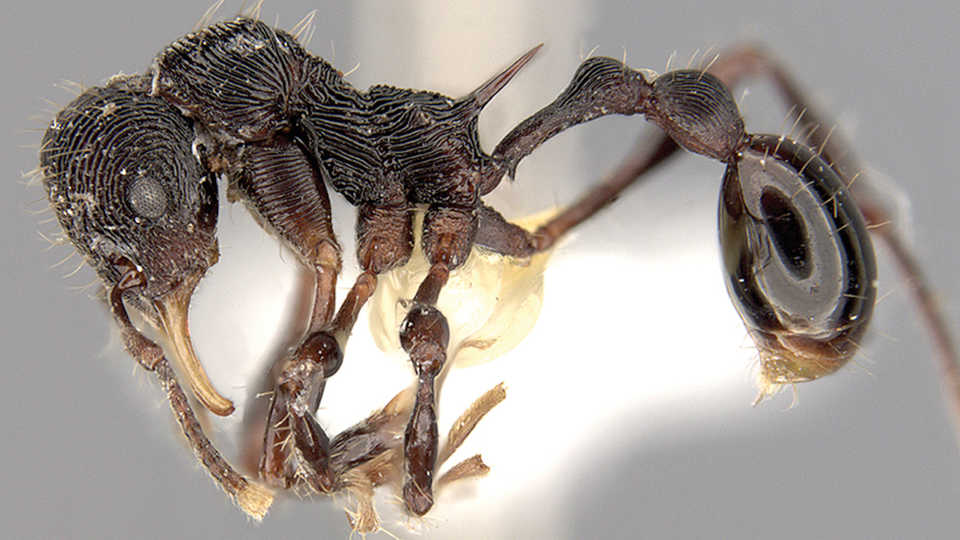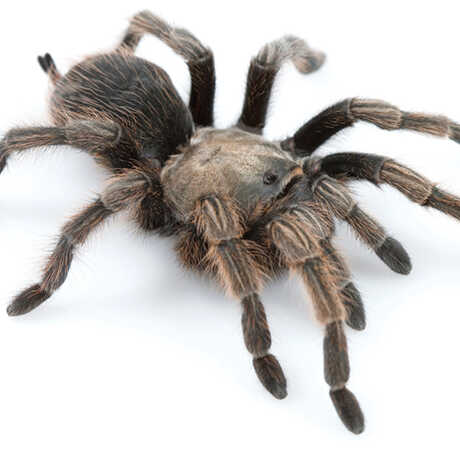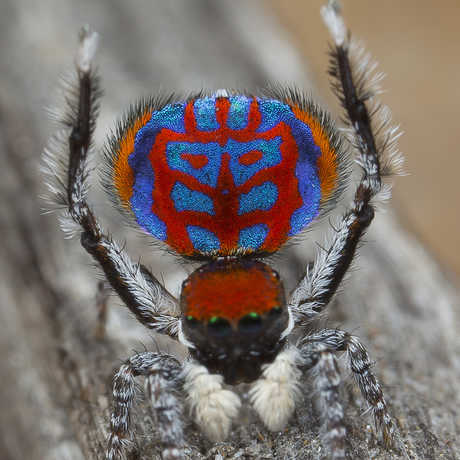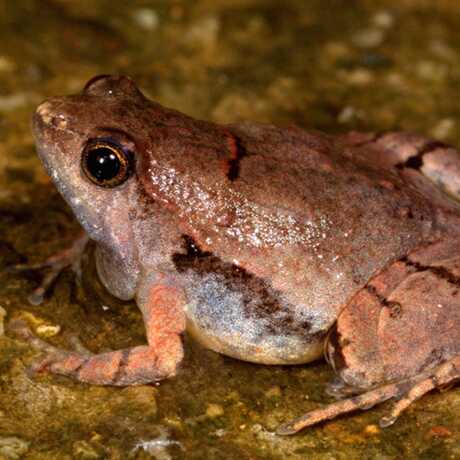Science News
New Discoveries: Ant Found in Frog Vomit and More

New Discoveries is a collaboration between Stanford and Academy scientists and staff, appearing on the second and fourth Wednesdays of every month. Here we celebrate new species publications and demonstrate how much more there is to learn about life on Earth.
Vomit Reveals New Species
If you follow our New Discoveries posts, you understand that new species can turn up in some of the most remarkable places. In this case, the ant Lenomyrmex hoelldobleri was discovered in the vomit of el diablito, or the little devil frog (Oophaga sylvatica), in Ecuador. Scientists use these toxic, ant-eating amphibians to gather new species for the researchers. A flush of the frogs’ stomachs after a meal provides scientists with the collected specimens, and often, new species. The frog is then sent on its way. The new ant, which has mandibles that look like forceps, is published in ZooKeys.
Forest Gecko
A new gecko species has just been found padding across the forest floor in western India. Cyrtodactylus varadgirii is the first new gecko species described in India in over a century. The leopard-spotted lizard is only two or three inches long and hides in the leaves and litter on the ground. It is described in a recent volume of the journal Zootaxa.
New Pika Species in Himalayas
The small mammal and rabbit-relative pikas can add a new species to their list—Ochotona sikimaria—discovered in Sikkim, India, in the higher altitudes of the Himalayan mountains. The pika was thought to be a subspecies, but scientist Nishma Dahal gathered DNA from pika pellets in the region and discovered the animals were very different from all known pika species. With American pikas threatened by climate change, Dahal told The Hindu more research on these animals is needed. “We must investigate their vulnerability to increasing global temperature,” she said. “To do so we must better understand their ecology and population dynamics. Such information is lacking for Asia pikas.”
Image: C. Rabeling & J. Sosa-Calvo


